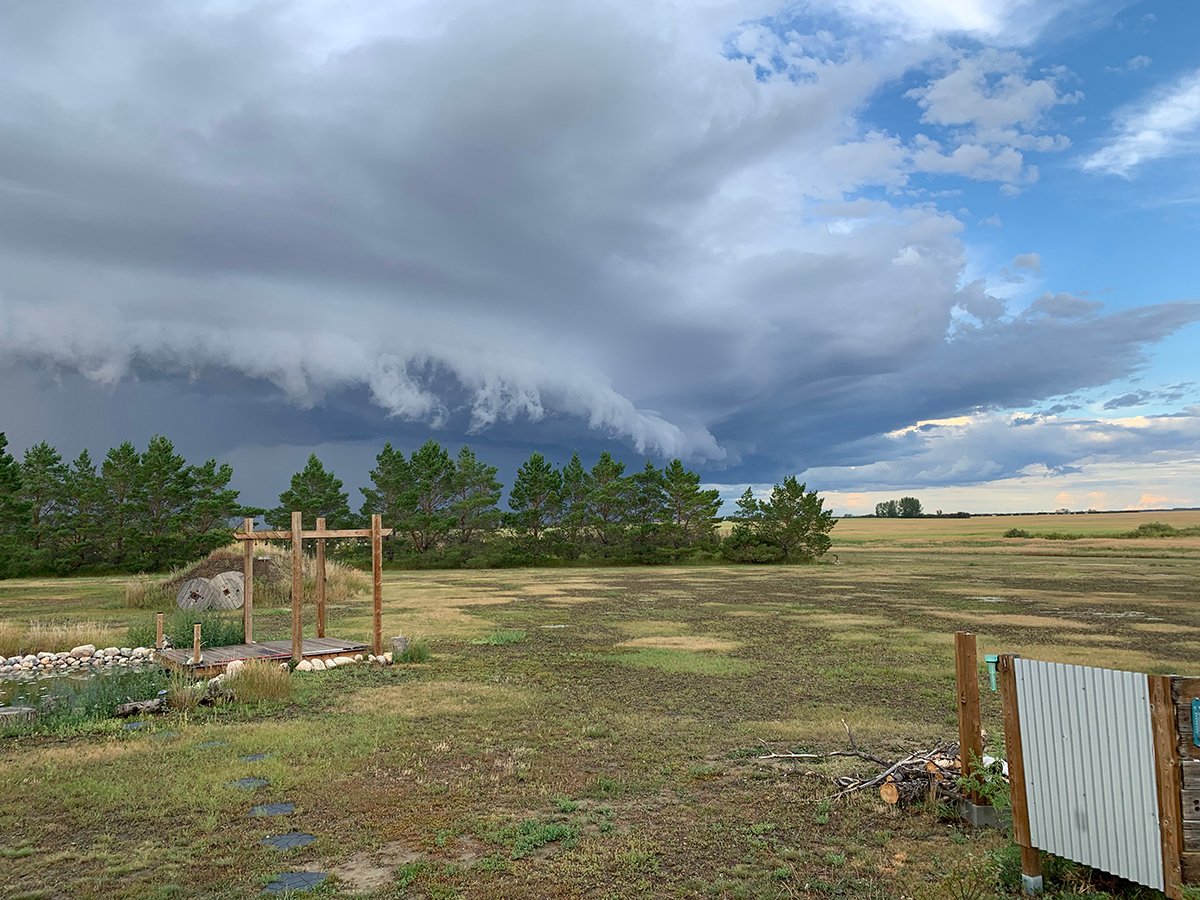Wolves are becoming a problem for cattle ranchers in northern Saskatchewan.
Colin Hughes, reeve of the Rural Municipality of Canwood and chair of the Cookson community pasture patrons’ committee, said the predators have always been a concern, but the past year has been worse.
“We lost 38 head in our fields this year by wolf kill,” he told the Saskatchewan Association of Rural Municipalities midterm convention earlier this fall.
Another 12 animals were wounded.
The wolves are coming out of Prince Albert National Park, where they typically prey on the bison herd that ranges freely within the park. The community pasture borders the park.
Read Also

Storm dynamics and extreme rainfall
Besides moisture, instability and orographic lift, the next biggest factor that contributes to heavy or extreme rainfall is storm dynamics.
Hughes said ranchers don’t know why the wolves are seeking out cattle instead of bison, but perhaps bison numbers have dropped.
Compensation is available through the Saskatchewan Crop Insurance Corp.’s wildlife damage program, but the kills must be verified.
Hughes said many of the livestock have been killed in areas that are accessible only by horses, and crop insurance was able to verify only five of the 38 deaths. As well, cattle can be eaten by other predators such as ravens by the time a carcass is found and an adjuster arrives from several hours away.
He presented a resolution to SARM asking that community pasture managers be accredited by crop insurance to document and verify deaths.
“Pasture managers are employees of Saskatchewan Agriculture,” he said. “It shouldn’t be too hard to get them accredited.”
The pasture patrons aren’t eligible for compensation without verified kills, which Hughes said is unacceptable. The Cookson pasture is home to 1,250 cows, yearlings and calves each summer. Hughes has used the pasture since 1972 and sends 60 animals to graze there.
“It really helps me because I don’t have the land base,” he said. “But I don’t want them all to die.”
Delegates passed his resolution, which was sponsored jointly with the RM of Big River.















